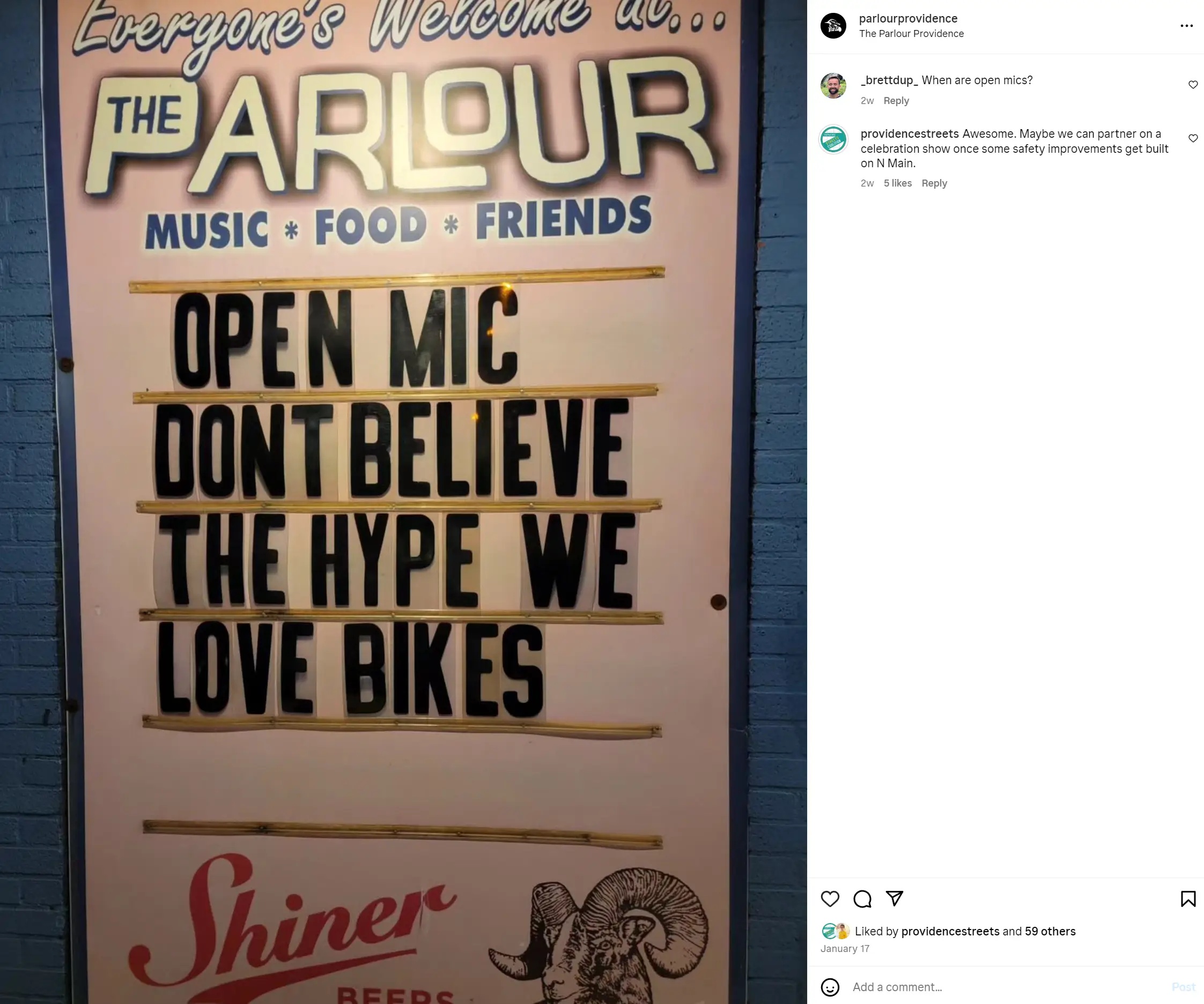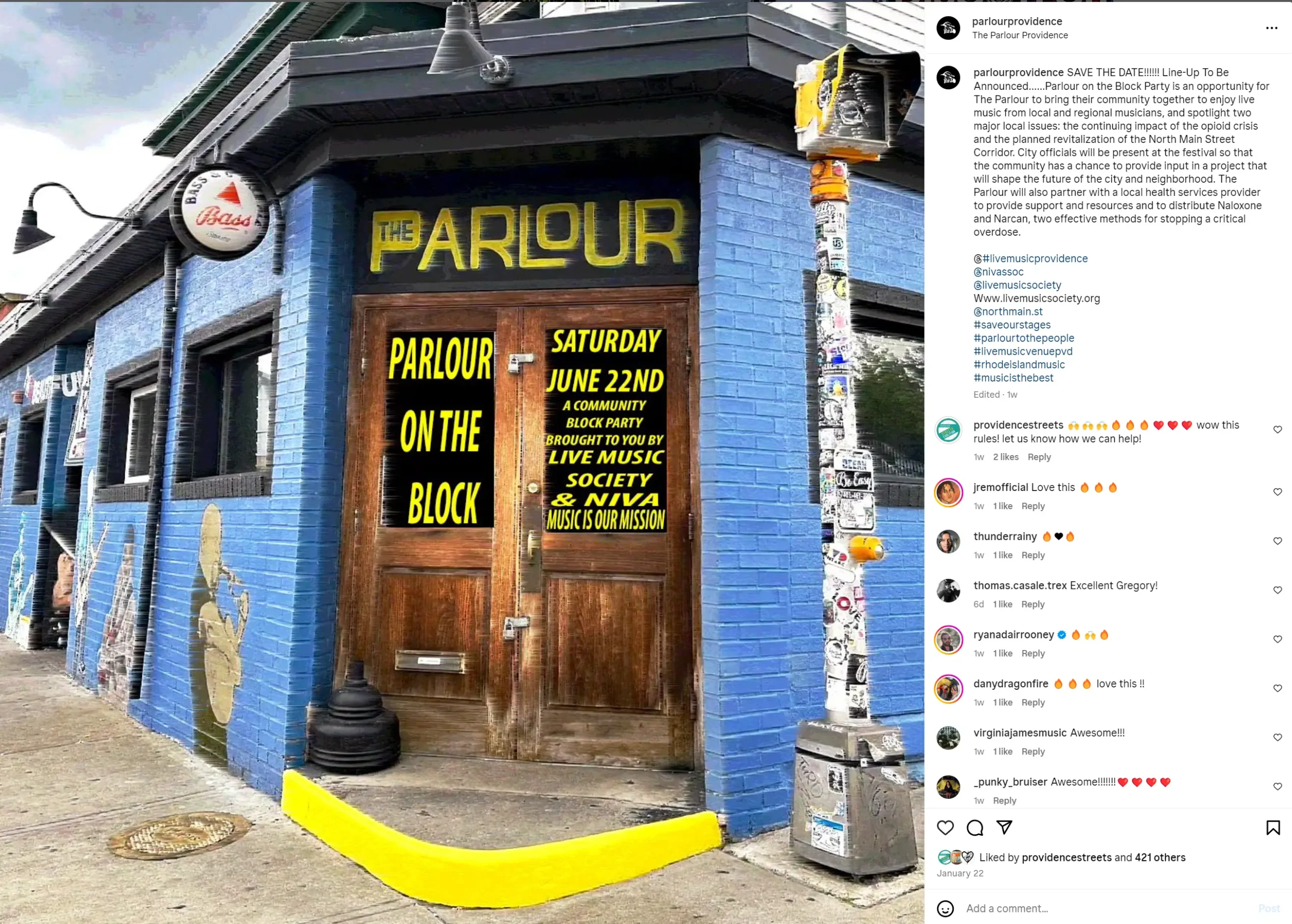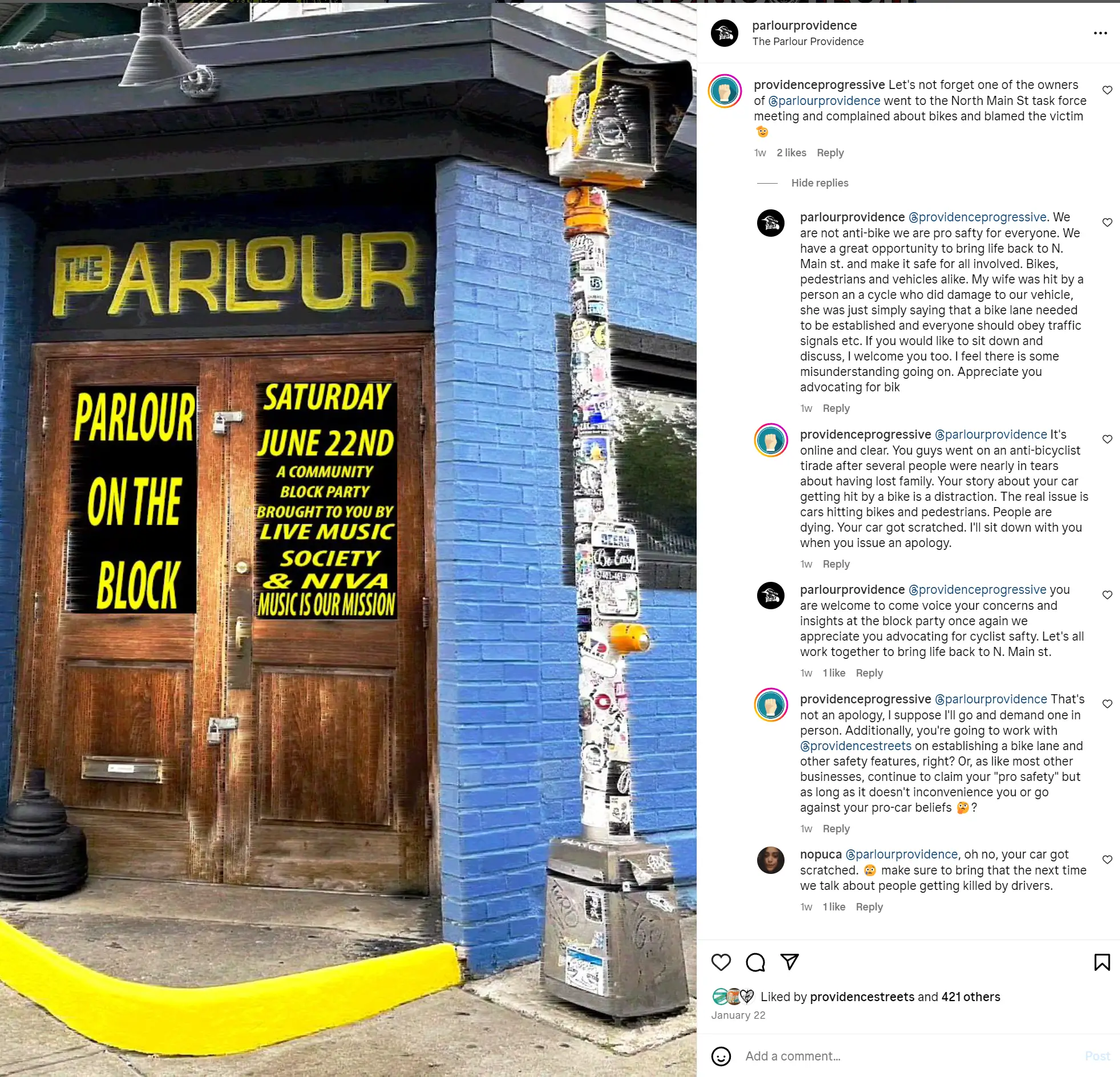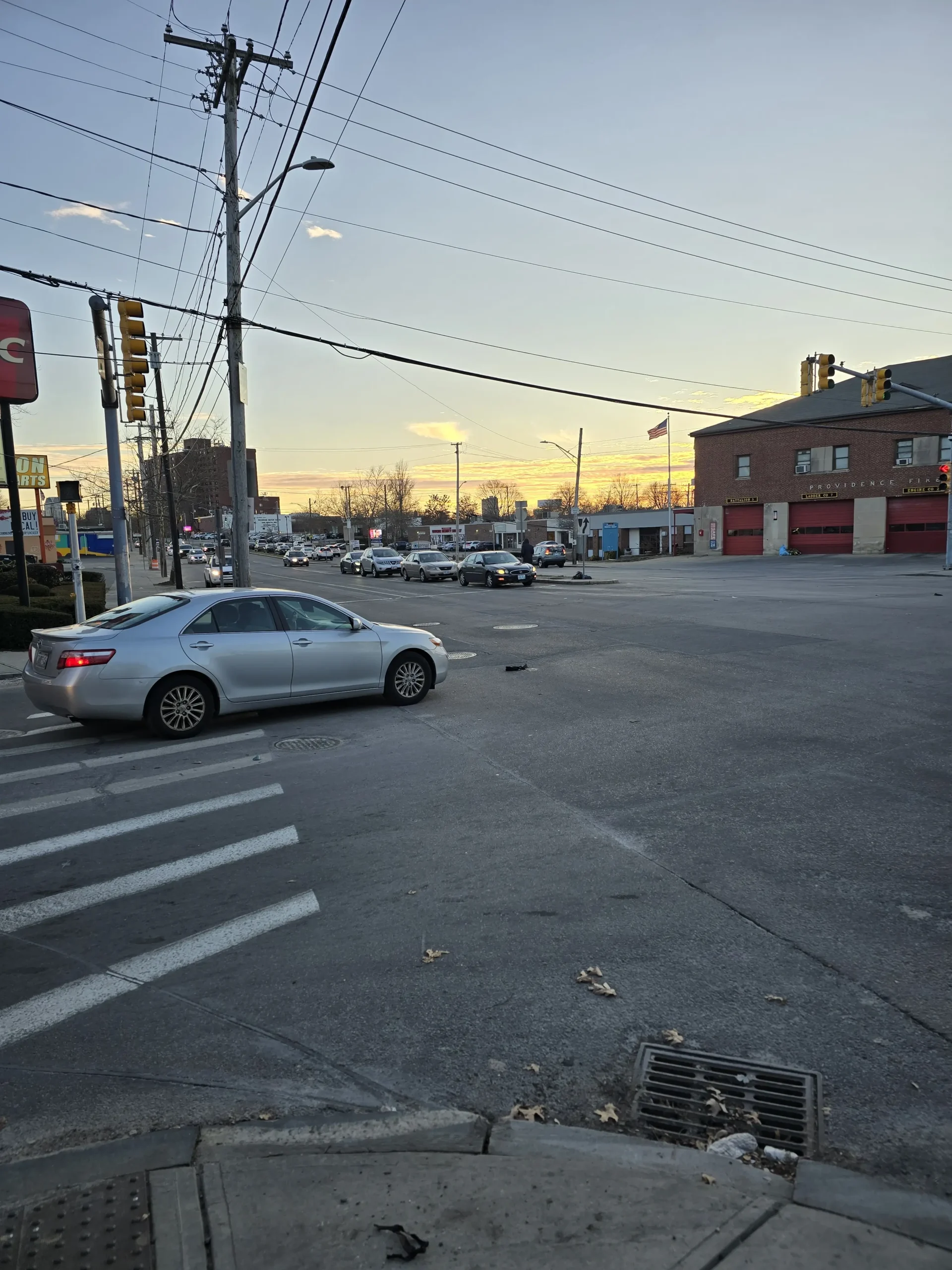The North Main Street Task Force was all about business during its second meeting. Two presentations were given during the meeting. The first, on zoning, was given by Bob Azar, Deputy Director of the Providence Department of Planning and Development. Afterward, Rosie Jaswal, a committee member representing Providence’s Green and Complete Streets Council, discussed quick actions that could be taken.
The first presentation took up a large chunk of meeting time as Task Force members, the public, and the presenter had avid discussions with a focus on business. What was concerning was the prevalent “micro victim blaming” comments made throughout; one could hear there was a “profit at the expense of everyone else” underlying sentiment. Sometimes, it became explicit. For example, a back-and-forth ensued between one of the business members and Jaswal, where the businessperson insinuated that North Main Street should be kept as is, a highway. Jaswal quipped, stating that there are thousands of residents who live right there. Ultimately, they didn’t find agreement. This was followed by another business representative who nearly went on a tangent, exclaiming, “Tenants have more rights than us [landlords].” All the while, homeless individuals were brought up as the source of issues to further muddy the waters.
The second presentation felt shorter and more productive. Jaswal gave a thoughtful presentation and passed out packets containing a letter of suggestions sent to the mayor’s administration some time ago. Unfortunately, these suggestions didn’t appear to have been acted on. She suggested further actions that would be quick to implement. Only time will tell if they will be heeded this time.
After the presentations, public comments were made available. Like last time, stories of frustration were shared. One mentioned how non-car users are never factored into the data. Another: about how their friend, who, despite living within walking distance of North Main’s businesses, drives themselves and their child as it feels unsafe otherwise. The last person to speak firmly kept asking about the status of the suggestions he provided at the last meeting. They weren’t implemented, so he pushed, “This is so quick; simply lower the speed limit to 20–it’ll only take a day or two.” The Task Force, including the RIDOT representative, brushed it away.
Another mentioned, “I can’t visit your business if I can’t cross the street, and in terms of zoning, why would I ever construct a residential-friendly establishment when I have a highway as my sidewalk? The root of the issue, which we seldom adequately address in these meetings, has caused this detrimental feedback loop to continue.”
There was an abundance of victim blaming in this meeting, including when one business owner from the Parlour blamed bicyclists. After that meeting, these were posted to their social media:



No apology. More dishearteningly, the Providence Streets Coalition welcomed their messages. The Coalition is vital as they bring their expertise and essentially represent vulnerable road users, swaths of victims, and those simply wanting to traverse streets safely. This time, though, we felt betrayed. A business owner—a person with power—took away our dignity and refused to apologize, and the folks representing us accepted it with glee.
Call it tough love; we want the Coalition to succeed, and we think it’s important to call out what happened because, in these ongoing conversations, if we are to succeed, we cannot let ignorant business owners or other powerful entities control the narrative. They need to be accountable; we saw what happened on Hope Street when the Coalition continually bent over backward, only for their efforts to get walked on. Let’s not have this happen here.
Back to the original topic, instead of leaving these meetings disappointed, we should leave each one knowing there will be some immediate change that betters North Main. To do so, the Task Force must listen more to the ones who are experts on complete streets and less to those who base their rationale on profits. Additionally, no “being nice,” as Susan Anderbois preaches at these meetings; instead, call out demeaning and victim-blaming behavior. Lastly, we ought to be aggressively pushing the RIPTA and RIDOT representatives to act quickly. People are suffering; the time to act is now.
Video recording of the meeting.
